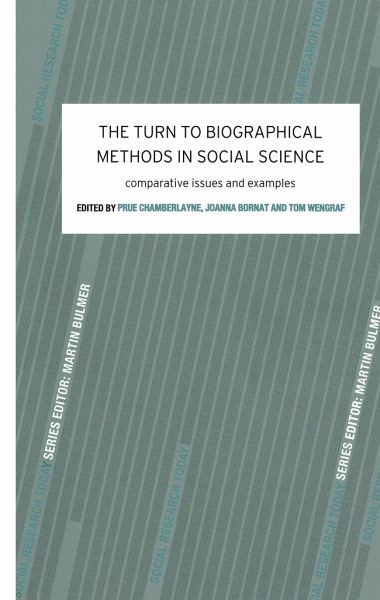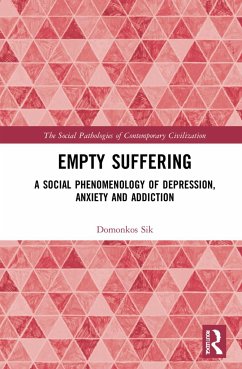
The Turn to Biographical Methods in Social Science
Comparative Issues and Examples
Versandkostenfrei!
Versandfertig in 1-2 Wochen
167,99 €
inkl. MwSt.
Weitere Ausgaben:

PAYBACK Punkte
84 °P sammeln!
Biographical research methods have become a useful and popular tool for contemporary social scientists. This book combines an exploration of the historical and philosophical origins of this important field of qualitative research.














